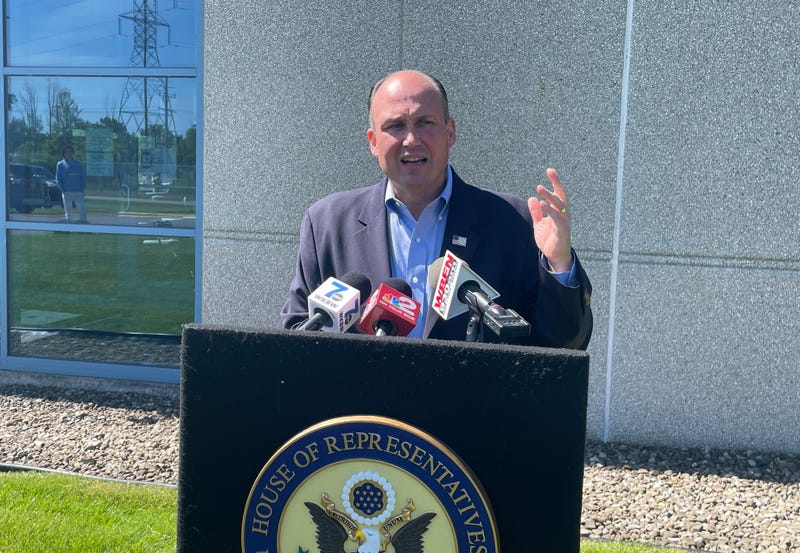
Buffalo, N.Y. (WBEN) - The House Commerce Committee has agreed to amend a bill to require AM radio in vehicles for the next eight years. Congressman Nick Langworthy (R, NY-23) cites WBEN in his support of the requirement.
"When storms rip through our region, whether it's lake effect blizzards off of Lake Erie or floods on the Allegheny, cell towers fail, power lines go down, and broadband is knocked out. But AM radio keeps broadcasting," said Langworthy recently in Washington, D.C.
"In Winter Storm Elliott, a blizzard that hit over Christmas, that I cite often in this committee and is one of the reasons I sought to serve on this committee, AM radio and our primary AM radio station in the Buffalo region, WBEN, was the lifeline for the community."
Langworthy also goes on to credit WBEN with saving lives during that storm.
"It wasn't the television stations, it wasn't the NPR affiliates. It was that AM radio station that literally saved lives. They were around the clock, live and local," Langworthy said. "In this age of media consolidation and media failures from newspapers to television stations, AM radio keeps our content locally and hyperlocally focused, and it is absolutely essential to my district."
Langworthy strongly feels that stripping AM radios from automobiles would be a death blow to the industry.
"This legislation makes sure that every new vehicle sold in America continues to have that trusty AM radio as standard equipment. It is essential," he added. "That means when it's a farmer in the field, a trucker on the highway, or a family driving down a back road, they will still have access to the emergency information they need in real time."
The proposed AM Radio for Every Vehicle Act (H.R. 979) will, if passed, require the Secretary of Transportation to issue a rule requiring access to AM broadcast stations in motor vehicles. If they don’t, carmakers could be fined.
Before the effective date of the rule, manufacturers who do not include AM would be required to put a warning label on vehicles. And carmakers would be prohibited from charging extra for AM radios.
The proposal would also direct the Government Accountability Office to study whether alternative communication systems could fully replicate the reach and effectiveness of AM broadcast radio for alerting the public to emergencies.
Langworthy also points to AM radio's value going far beyond emergencies.
"It serves as the community's public square, a place where local voices are heard on local topics," he said. "Small town broadcasters stay connected with their neighbors, and diverse perspectives are shared."
Langworthy objects to the eight-year sunset on this bill, adding he prefers AM radios to be a permanent fixture in all vehicles.
"By passing H.R. 979, we safeguard both public safety and free expression, guaranteeing that no community, no matter how rural or remote, is left behind. I urge my colleagues to join us and support this bipartisan common sense bill," Langworthy concluded.
